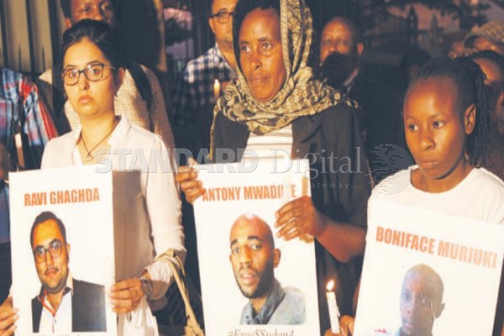×
The Standard e-Paper
Join Thousands Daily

South Sudan’s top most judges have questioned the rationale behind jailing four Kenyans convicted of simple fraud for life.
In their decision delivered two weeks ago and received by the families of Ravi Ghaghda, Anthony Mwadime, Anthony Keya and Boniface Muriuki, three appellate judges separately censured their juniors for imposing unreasonably harsh sentence on the accused.